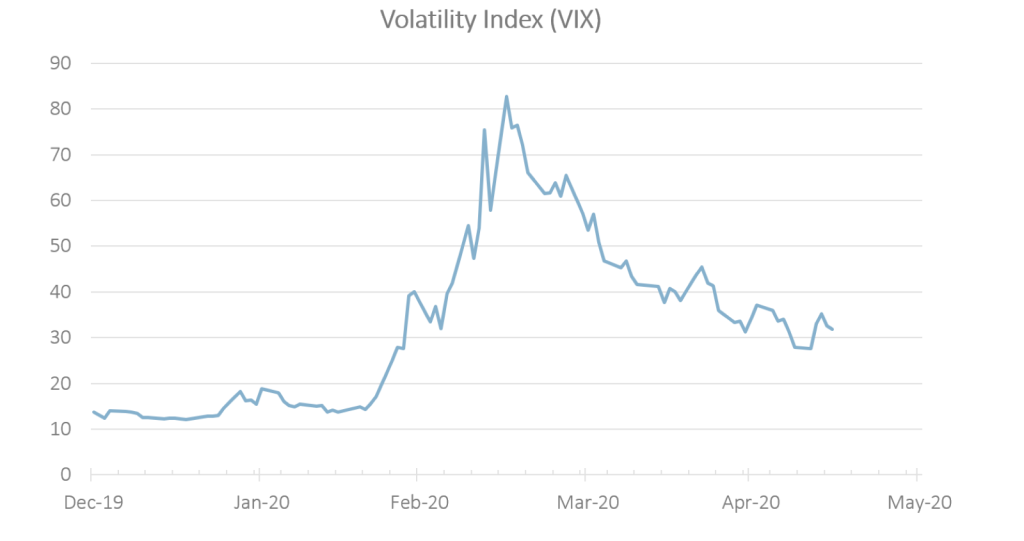During the past few weeks, business owners have been thrust into a new normal and forced to evaluate the potential short-term and long-term implications of COVID-19 on their businesses, employees, and families. One word that I have heard in almost every conversation with business owners and investors over the past month is “uncertainty”. In the context of business valuation, uncertainty increases the riskiness of a company and reduces the value of the business. Fundamentally, the value of a business is based on the expectation of its investors receiving future cash distributions from the operations or sale of a business and its assets, adjusted for risk. With the economic uncertainty from COVID-19 closures and global health concerns, the riskiness of many businesses to achieve their expected earnings has likely increased, decreasing the value of these businesses.
The impact that COVID-19 will have on business value depends on company specific facts and the date of the valuation. The IRS defines fair market value as the “price for which you could sell your property to a willing buyer when neither of you has to sell or buy and both of you know all the relevant facts.” Business valuations only incorporate information that is known or knowable as of the date of the valuation. The question that should be asked is: At what point was the impact of COVID-19 known or knowable?
There is no clear-cut answer to this question as there has been much debate over the severity of the global pandemic and who knew what and when. A quick google search shows that the first known case can be traced back to mid-November, but I can tell you that most buyers were not doing COVID-19 due diligence in early December. There are many helpful timelines that highlight the global response and market impact of COVID-19; however, many local private businesses were believed to be insulated from the outbreak during early 2020. Anecdotally, we spoke with many Alabama-based companies in February who believed that they had limited Coronavirus exposure based on their customers’ US-based supply chains or local consumer focus. Personally, I even held a birthday party on March 6th, unaware that the establishment would be ordered to be closed only 10 days later.

Statistically, we can evaluate the changes in the stock market and attempt to determine when the market began pricing the impact of COVID-19 and when a potential investor would have likely become aware of a potential larger impact. The Volatility Index (VIX), which measures the expected price fluctuations of S&P 500 stock options over the next 30 days, began to show signs of increased volatility after February 19th, the same day the S&P 500 reached its market high (3,386). By the end of February, the VIX had increased from 14.38 to 40.11 (179% increase) and by March 16th, the VIX had increased to 82.68 (475% increase since February 19th). By March 23rd, the S&P 500 had dropped to 2,237, a 34% decline from the market high on February 19th. Even within this volatile period, the timing of the impact of COVID-19 on individual companies must be done on a case-by-case basis. Companies with supply chains reliant on raw materials from China were negatively impacted earlier than February, and other companies, particularly ones that benefited from changes in business and consumer demand, improved during this time period.
Similarly, local “stay at home” and “safer at home” orders have impacted each business differently based on different state-mandated timelines, even for businesses within the same industry. While many businesses today are optimistically trying to return to normalcy, it appears uncertain how long and to what extent our local and national economy will be affected by COVID-19.
Valuing businesses in times of uncertainty is not new to us. We’ve sold bankrupt businesses, raised capital for pre-revenue start-ups, and valued countless other companies in unique, uncertain economic positions. While COVID-19 presents several new factors to consider, the fundamental drivers of value remain the same. Our job as business valuation appraisers is to review the facts, assess risks, and determine the price that would be acceptable to arrive at a fair transaction at the time of the valuation.
Business owners often have a significant amount of their net worth tied to their own businesses. When evaluating strategic business decisions or personal estate planning options, a business valuation is often a good place to start. If you or your client is considering the sale of a business, evaluating succession plan options, raising debt or equity capital for growth, or contemplating how to put capital to work most effectively, contact us to discuss how to prepare in advance to achieve the best possible outcome.
